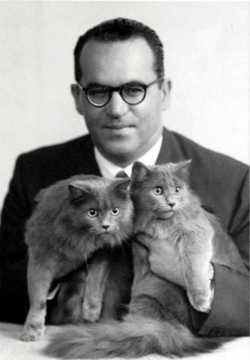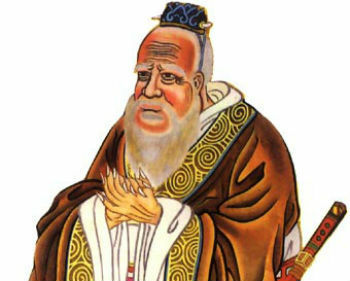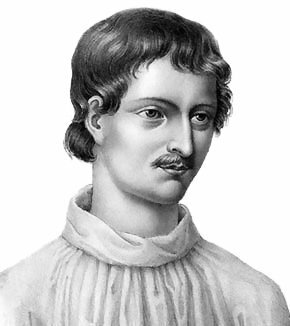Guimaraes Rosa he was one of the most important Brazilian writers of modernism, in addition to having pursued a career as a diplomat and doctor.
He was the third occupant of Chair No. 2 of the Brazilian Academy of Letters (ABL), in 1967. He was part of the third modernist generation, called the "Generation of 45".
Biography

João Guimarães Rosa was born in Cordisburgo, Minas Gerais, on June 27, 1908.
Since childhood, Rosa studied languages (French, German, Dutch, English, Spanish, Italian, Esperanto, Russian, Latin and Greek). Consequently, he attended secondary studies at a German college in Belo Horizonte.
Shortly before entering the University, in 1929, Guimarães already announced his mastery of letters, where he began to write his first short stories.
In 1930, at just 22 years of age, he graduated from the Faculty of Medicine of the University of Minas Gerais, the year he married Lígia Cabral Penna, with whom he had two daughters.
He was a Medical Officer of the 9th Infantry Battalion, when, in 1934, he entered a diplomatic career at Itamaraty.
Guimarães Rosa was Patron of Chair No. 2 at the Brazilian Academy of Letters, taking office three days before he died, on November 16, 1967.
In his inaugural speech, curiously, his words highlight the theme of death:
“But - what a detail of absence. It makes a difference? “You cry those who shouldn't cry. A man awakened neither by the dead nor by the living mourns" - Krishna instructs Arjuna, in the Bhagavad Gita. People die to prove they lived. Only the epitaph is a lapidary formula. (...) Let us rejoice, hanging enormous lamps. And: "The light shines on the righteous, and joy is given to the tense heart!" - then delivers the psalm. People don't die, they're enchanted.”
At the height of his career as a writer and diplomat, Guimarães Rosa, aged 59, died in the city of Rio de Janeiro, on November 19, 1967, victim of a heart attack.
Construction
Guimarães Rosa wrote short stories, novels, novels. Many of his works were set in the Brazilian hinterland, with an emphasis on national themes, marked by the regionalism and mediated by an innovative language (linguistic inventions, archaism, popular words and neologisms).
Rosa was a scholar of Brazilian popular culture. His work that deserves more attention and for having been the most awarded, is “Grande Sertão: Paths”, published in 1956 and translated into several languages.
About his writings, the author himself states:
“When I write, I repeat what I've experienced before. And for these two lives, one lexicon is not enough. In other words, I would like to be a crocodile living on the São Francisco River. I would like to be a crocodile because I love the big rivers as they are deep like a man's soul. On the surface they are very lively and clear, but in the depths they are quiet and dark as the suffering of men.”
Some works:
- Magma (1936)
- Sagarana (1946)
- With the Cowboy Mariano (1947)
- Corpo de Baile (1956) divided into three soap operas: “Manuelzão e Miguilim”, “No Urubuquaquá, no Pinhém” and “Noites do sertão”.
- Grande Sertão: Veredas (1956)
- First Stories (1962)
- General Field (1964)
- Sertão Nights (1965)
Awards Received
Guimarães Rosa received several literary awards, namely:
- Magma (1936) - Brazilian Academy of Letters Award
- Sagarana (1946) - Filipe d'Oliveira Award and Humberto de Campos Award
- Grande Sertão: Paths (1956) - Machado de Assis Award, Carmen Dolores Barbosa Award and the Paula Brito Award
- First Stories (1962) - PEN Clube do Brasil Award
Sentences
Some phrases in the works of Guimarães Rosa:
- “The running of life wraps everything up. Life is like that: it warms and cools, tightens and then loosens, quiets and then rests. What she wants from us is courage”
- “Don't you see? What is not God is the devil's state. God exists even when there isn't. But the devil doesn't need to exist to exist - if you know he doesn't exist, that's where he takes care of everything. Hell is endless that you can't even see. But we want Heaven it's because we want an end: but an end with after him we see everything. If I'm talking to the flutes, you cut me. This is my way. I was born not to have a man like me in my tastes. What I envy is your instruction from you...”
- “Look: the most important and beautiful thing in the world is this: that people are not always the same, they are not finished yet - but that they are always changing.”
- “Living is very dangerous... Because learning to live is what living really is... Dangerous crossing, but it's the one of life. Sertão that rises and lowers... The most difficult thing is not to be good and to behave honestly, it is even difficult, it is to know clearly what you want, and to have the power to go as far as the word.”
- “When I die, may they bury me on the edge of the plateau, content with my land, tired of so much war, grown in heart.”
- “Oh, I guess I didn't really want anything, I just wanted everything so much. One thing, the thing, this thing: I just wanted to be - to be!”
- “Living is a continued carelessness. But who knows how? Living...you already know: living is etcetera...”
Read too:
- Modernism in Brazil
- Generation of 45
- Third Generation Modernist
- The Language of Modernism
- Modern and contemporary Brazilian poets



